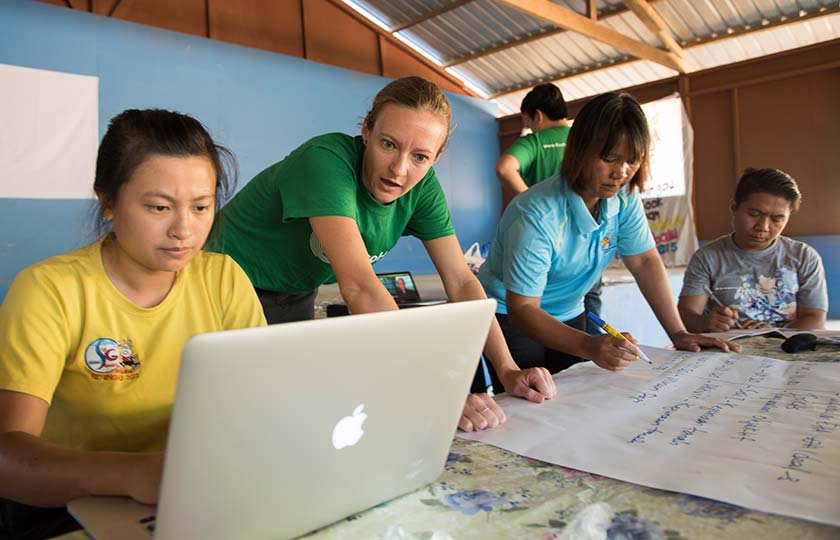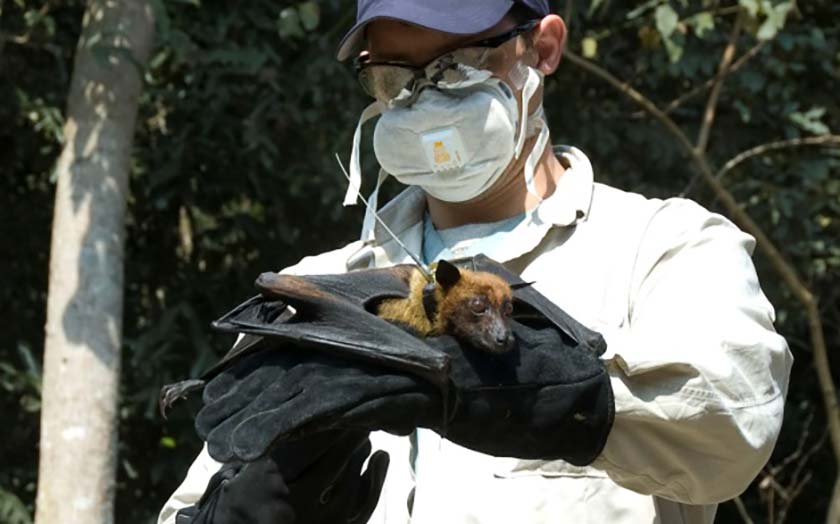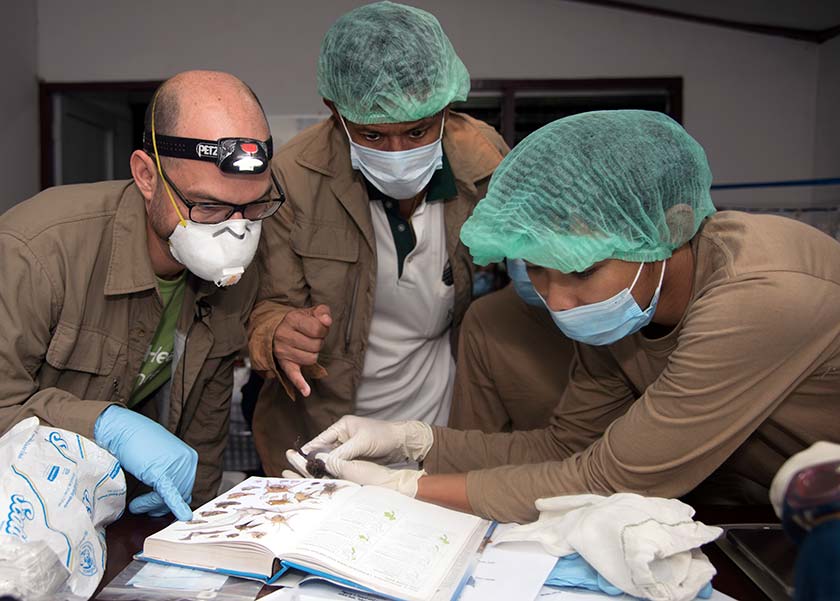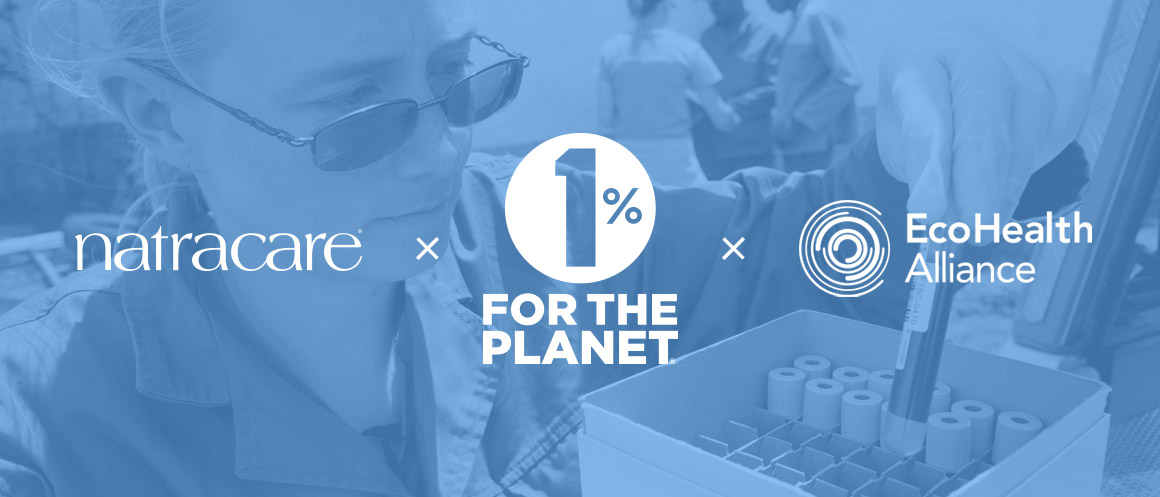So far, 2020 has been taken over by the global pandemic. Finding ways to continue with life while keeping ourselves and others safe has become the new normal. It’s been packed with learning curves and some positive life lessons – including learning to truly value our outdoor spaces and the role they play in maintaining good mental health. In the wake of this pandemic, the Natracare team has sought out an organisation working to reduce the possibility of it happening again. Our partners at EcoHealth Alliance not only work to protect nature, they also research how nature can help towards the prevention and minimisation of disease.
Who is EcoHealth Alliance?
EcoHealth Alliance is a research-led non-profit organisation working to protect wildlife, nature, and public health from the spread of disease.
Their mission is to develop science-based solutions that promote environmental conservation and prevent pandemics. EcoHealth Alliance research how to achieve global environmental health, and how to implement their research sustainably within communities and alongside global policymakers. They take a holistic “OneHealth” approach to their work and we’re thrilled to be supporting their Forest Health Futures project in Liberia, which considers how nature, especially forest land, can stop the spread of diseases like COVID-19.

What is the OneHealth approach?
Human, animal, and environmental health are all connected to and dependent on each other. That’s exactly why EcoHealth Alliance has designed a OneHealth approach to their work that seeks to understand human interactions within the natural world – helping to protect both in unison.
75% of emerging infectious diseases (EIDs), including COVID-19, are of animal origin, and over 40% of EIDs can be linked to land-use change. Land-use change is when humans alter how land is utilized – for example cutting down forest land for agricultural or residential use. EcoHealth Alliance is working to gain a greater understanding about how human interactions linked to habitat fragmentation, deforestation, and land-use change can impact the behaviour of diseases like COVID-19 and Ebola.
How does reforestation help prevent disease?
At first glance, it may seem like the way in which we use land and the spread of diseases like COVID-19 are unrelated. But there are actually several ways in which taking care of and creating more protected forest land can help to prevent global pandemics. Reforestation protects both animals and humans simultaneously – it creates physical barriers and distance between human and animal habitats, improves air quality and encourages biodiversity. EcoHealth Alliance’s Forest Health Futures project focuses on this.

What is the Forest Health Futures project?
In 2019, EcoHealth Alliance launched its global Forest Health Futures project in Liberia. This project aims to minimise the effects of infectious diseases, their impact on human health, and the economic costs to communities. To achieve this, it will determine how the transition of forest land to agricultural land increases risk of disease outbreaks. Another goal for the project is to promote economic development in the area through the sustainable and strategic use of natural resources.
To gain a better understanding of the local context and processes responsible for driving the spread of disease, EcoHealth Alliance works with a variety of Liberian stakeholders. From governments and non-profits to communities and private companies, having all stakeholders involved creates a holistic understanding of the project. It also ensures that the outcomes of the project are beneficial to everyone, and the community is invested in maintaining these outcomes.
The deliverables for the Forest Health Futures project will include:
- A unified data set compiled from Liberia’s Ministry of Health, and maps generated from satellite imagery that gives the locations of infectious disease outbreaks related to land-use change.
- A socio-ecological model that quantifies the economic impacts of infectious diseases caused by land-use change. The diseases of interest are Malaria, Lassa Fever, and Disease X (currently unknown zoonotic diseases that have the potential to be caught by humans).
- A “scenario planning” module to assess future land-use plans under different forecasts of commodity yield, production profits, and ecosystem service values.
- Capacity building, training activities and land-use planning tools created by EcoHealth Alliance within communities to give locals the knowledge and tools they need to sustain the project’s success.

EHA and COVID-19
EcoHealth Alliance’s work is important now, more than ever. Both the current pandemic and the 2016 Ebola epidemic are examples of the exact circumstances their work is designed to prevent. It is EcoHealth Alliance and Natracare’s hope that the Forest Health Futures project will create a blueprint for understanding and managing diseases in forested lands undergoing transitions to agricultural uses.
Find out more about the amazing work that EcoHealth Alliance are doing here.









